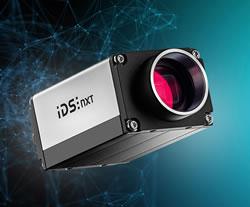AI-Powered Robot by Boston Dynamics and Toyota Research Institute Takes a Key Step Towards General-Purpose Humanoids
Joint research collaboration enables the Atlas humanoid robot to achieve autonomous whole-body manipulation and locomotion behaviors using Large Behavior Models
Today, Boston Dynamics and Toyota Research Institute (TRI) announced a big step forward in robotics and artificial intelligence research: demonstrating a Large Behavior Model (LBM) powering the Atlas humanoid robot. In a video jointly released today by the two organizations, Atlas performs a long, continuous sequence of complex tasks that require combining object manipulation with locomotion. By adopting LBMs, new capabilities that previously would have been laboriously hand-programmed can now be added quickly and without writing a single new line of code.
The video shows the humanoid using whole-body movements, such as walking, crouching, and lifting, to accomplish a series of packing, sorting, and organizing tasks. Throughout the sequences, researchers interject unexpected physical challenges mid-task, such as closing the lid of a box and sliding it across the floor, requiring Atlas to self-adjust in response. Humanoids that have demonstrated this capability before typically separate the low-level walking and balancing control from the control of the arms for manipulation; in this project, a single Large Behavior Model has direct control of the entire robot, treating the hands and the feet almost identically.
This breakthrough is the result of the October 2024 joint research partnership between Boston Dynamics and TRI, which was designed to leverage their combined strengths and expertise to accelerate the development of smart robots. The result reaffirms the incredible potential of AI technologies in developing general-purpose humanoid assistants.
"This work provides a glimpse into how we're thinking about building general-purpose robots that will transform how we live and work," said Scott Kuindersma, vice president of Robotics Research at Boston Dynamics. "Training a single neural network to perform many long-horizon manipulation tasks will lead to better generalization, and highly capable robots like Atlas present the fewest barriers to data collection for tasks requiring whole-body precision, dexterity, and strength."
"One of the main value propositions of humanoids is that they can achieve a huge variety of tasks directly in existing environments, but the previous approaches to programming these tasks simply could not scale to meet this challenge," said Russ Tedrake, senior vice president of Large Behavior Models at Toyota Research Institute. "Large Behavior Models address this opportunity in a fundamentally new way - skills are added quickly via demonstrations from humans, and as the LBMs get stronger, they require less and less demonstrations to achieve more and more robust behaviors."
The project, co-led by Scott Kuindersma and Russ Tedrake, is conducting research to answer fundamental questions about humanoid robots and Large Behavior Models, advancing the field's understanding of large models for whole-body control, including advanced manipulation and dynamic behaviors.
For more technical information, please visit https://bostondynamics.com/blog/large-behavior-models-atlas-find-new-footing/.
About Boston Dynamics
Boston Dynamics is the global leader in developing and deploying highly mobile robots capable of tackling the toughest industrial and safety challenges. Our robots are equipped with advanced mobility, dexterity and intelligence, enabling automation in unstructured or hard-to-traverse and unsafe spaces, from manufacturing facilities, power plants, and construction sites, as well as warehouses and distribution centers. We have three robots in our portfolio: Spot®, a quadruped that conducts industrial inspections for enterprise asset management and helps to keep people safe through public safety applications; Stretch®, a box-moving robot currently being deployed with logistics and retail customers; and Atlas®, our electric humanoid platform currently in development. For more information on our company and our technologies, please visit www.bostondynamics.com.
About Toyota Research Institute
Toyota Research Institute (TRI) conducts research to amplify human ability, focusing on making our lives safer and more sustainable. Led by Dr. Gill Pratt, TRI's team of researchers develops technologies to advance automated driving, energy and materials, human-centered artificial intelligence, human interactive driving, large behavior models, and robotics. Established in 2016, TRI has offices in Los Altos, California, and Cambridge, Massachusetts. For more information about TRI, please visit http://tri.global.
Featured Product

